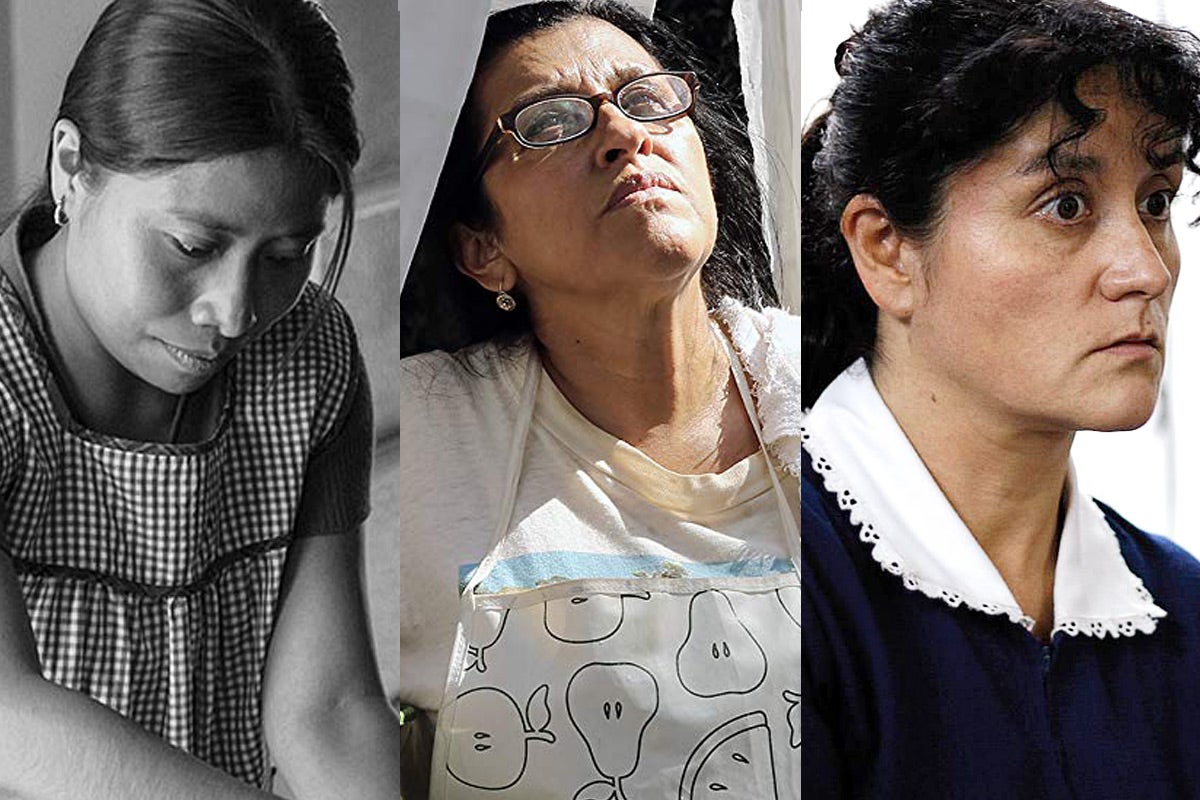According to Alfonso Cuarón, Roma is the movie he was always meant to make, and most critics (including Slate’s own) agree. The story of a live-in housekeeper based on the writer-director’s childhood nanny, Roma is intensely, even obsessively, personal, with Cuarón apparently determined to put as much of his early years as possible on screen, down to the mounted dog heads at a vacation hacienda and the make and model of his father’s car. But we can also consider Roma as something other than a work of introspection.
The Netflix release is the highest-profile, but nowhere near the first, Latin American feature made by a filmmaker who found a muse in his or her caretaker—and something to indict in the class hierarchies that keep employers and employees under one roof but inhabiting wildly different worlds. In fact, Roma isn’t even the first black-and-white film in this subgenre. Brazil’s Santiago (2007) and The Second Mother (2015) and Chile’s The Maid (2009), among others from Argentina and beyond, also re-examine the ways systemic inequalities seep into and warp household dynamics. In Santiago’s case, the film even calls attention to the limits of art made by the middle and upper classes about the less advantaged, particularly when the latter are or were under the artist’s employ. That these films all arrived in the 21st century, when live-in domestic help is in many places going out of fashion, seems fitting: Things are always easier to see, and condemn, in hindsight.
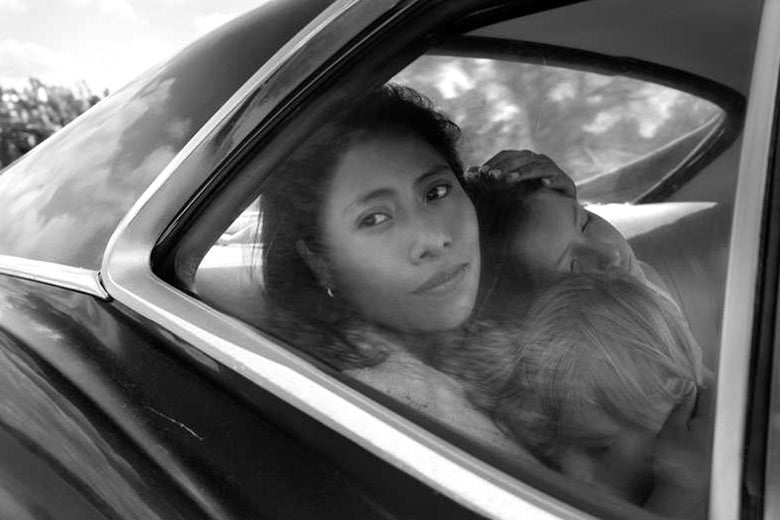
Topping dozens of Top 10 lists, Roma is the most lauded film of the year, but it isn’t without its dissenters. In a tweet, the New Yorker’s Richard Brody, for example, deplored “the formula of upper-middle-class filmmakers depicting heroic manual laborers as deprived of discourse, as strong silent (terse and quiet) types” calling this trope a “failure of observation and imagination.” Elsewhere, critic Christopher Llewellyn Reed lambasted the film as “a tone-deaf paean to class-based hierarchies” that “glorifies the sacrifices of domestic servitude.”
Cleo is indeed a circumspect protagonist, but I disagree that Cuarón’s appreciation for his former maid, Liboria “Libo” Rodríguez, amounts to a blinkered nostalgia. It’s closer to an atonement. Roma is above all an expression of gratitude and, secondarily, an indictment of the casual indifference with which the central family treats its two housekeepers. But it is less a failure of imagination and observation than it is about the family’s failure of imagination and observation. Cleo is tireless, or forced to be, while domestic chaos slowly consumes her employers. Cuarón and his family might have taken for granted all that Rodríguez did, but by forcing himself to see his childhood through her eyes, based on his own interviews with her, he isn’t anymore.
Roma would make for a fascinating double billing with the first-person documentary Santiago, by João Moreira Salles (brother of Walter). In 1992, Salles spent five days interviewing his parents’ former butler of 30 years, Santiago Badariotti Merlo. The result, according to the director in voice-over, was the only film he never finished. Thirteen years later, Salles revisited the footage he had shelved more than a decade earlier to figure out why he’d given up on the project. The filmmaker’s postmortem ultimately reveals a tragic truth: Around his subject, Salles had never stopped acting like (as he puts it) “the owner’s son.”
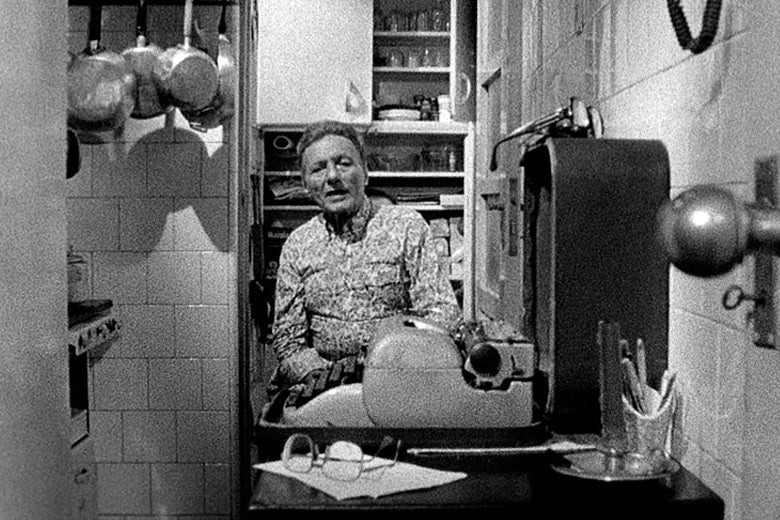
If Cleo is too quiet for some critics, Santiago never stops talking. It’s easy to tell from his monologues why Salles pursued him as a subject: The cultured, multilingual butler was a glamorous eccentric. An Argentine who spent part of his childhood in Italy, he toiled as an amateur historian for more than five decades, penning 30,000 pages about seemingly every aristocrat in written history, from Switzerland to India, and China to Ethiopia. The film suggests that Santiago chose to serve Salles’ influential Rio de Janeiro clan because of his veneration for the powerful, whom he describes as “cruel but true saints who did very well for humanity.” “That’s why I wonder why these people die,” he says. “Those who are good should not die, right?” Santiago calls his historical research a “joyful tomb.” Salles seems to realize only years later that the butler’s obsessive cataloging was also his idiosyncratic way of dealing with his fear of death. Santiago revived those long-forgotten noblemen in his writings, it appears, to keep alive the possibility that the deceased will be remembered.
Santiago died between the time of the interviews and Salles’ revisit. The director’s recognition of his childhood butler’s fears—and the memorial that the film thus becomes—gives it a rare poignancy. But the reason that Santiago never stops talking is that Salles never allows him to. Salles acknowledges that his habit of ordering around the then-retired Santiago meant that his subject never felt able to express himself freely or step outside of the confines of their former relationship. It’s the kind of epiphany that encourages viewers to reappraise everything they’ve watched thus far, and perhaps look for the invisible power structures that govern other portraits and stories.
Can any movie made amid affluence—which, it’s no secret, is most movies—fully capture the sentiments and struggles of the working class? Anna Muylaert’s The Second Mother probably comes closest to such a feat. Based in part on Muylaert’s experiences with her former nanny, the drama, like Santiago, is interested in the internalized classism that helps frame domestic service as something akin to a calling. Middle-aged Val (Regina Casé) is fine cleaning after her São Paulo employers and doting on their thoroughly unexceptional college-bound son, Fabinho (Michel Joelsas), who prefers the maid’s company to his parents’. But Val is forced to question her place in the home, as well as her beliefs about how the world works, when her estranged daughter, Jéssica (Camila Márdila), an architecture prodigy who has defied all odds to have a fighting chance at the same top-tier university Fabinho hopes to attend, comes to stay with her. Val’s affection for Fabinho is uncomplicated. Her relationship with Jéssica is much thornier, as the teenage girl openly rebels against the upstairs-downstairs rules and appears more at home among the cosmopolitan upper crust than with Val in the maid’s cramped quarters.
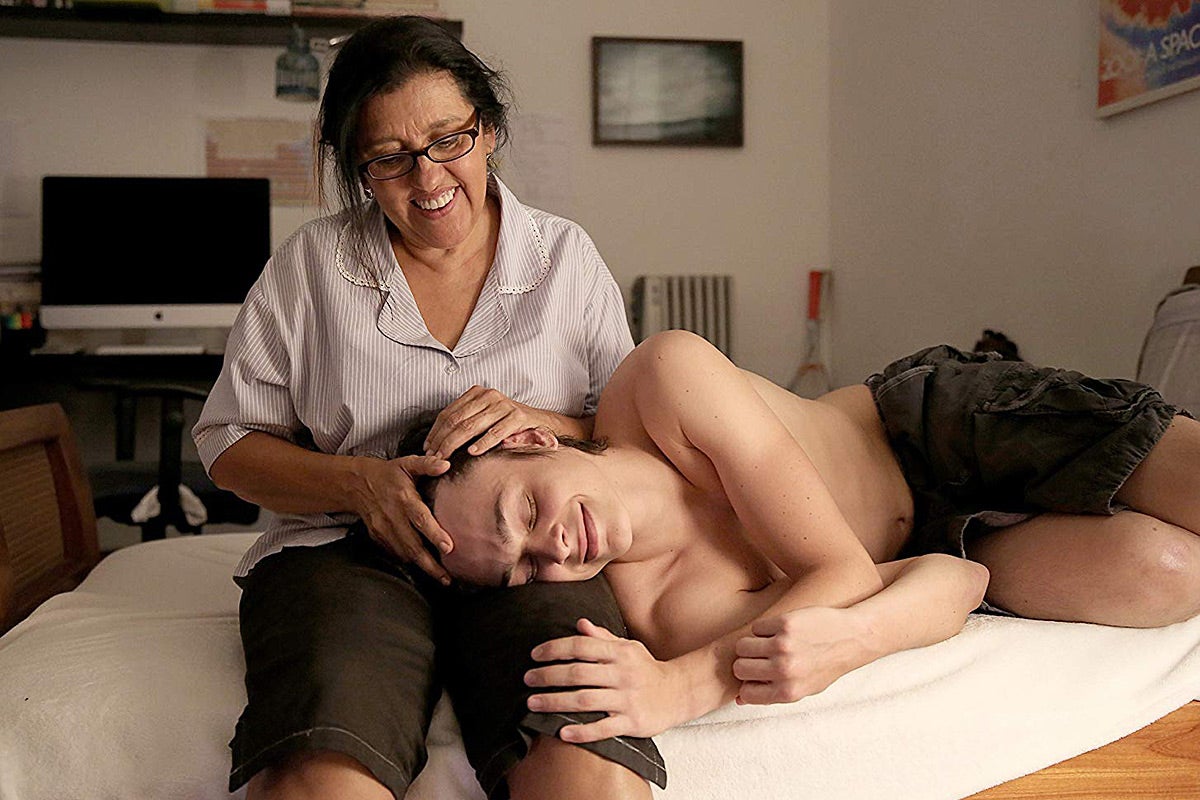
In Roma, the young Cleo never has to make the difficult decision that has marked the older Val’s relationship with her only child: putting her employer’s family ahead of her own daughter. Val’s employers are a study of the sometimes fine line between snobbery and oppression. When Jéssica arrives, the Southerners make fun of her Northeastern accent, and both father and son immediately assume the teen’s sexual availability. Those subtler prejudices are married to more pernicious understandings about where the (darker-skinned) Val and Jéssica’s places are in the household and where they’re not (the dinner table, the pool). “I don’t know where you learned these things,” Jéssica spits about her mother’s instinctive deference and self-effacement in her employers’ presence. Was Val “born knowing” how to act properly, as she proclaims, or have her years as a live-in servant, in which she’s outnumbered by those who comport themselves as her superiors, distorted her sense of self and her possibilities?
These larger questions are couched in Muylaert’s sharp-eyed observations of the way power suffuses each minute of Val’s then Jéssica’s lives. On the girl’s first morning, the lady of the house quietly puts Jéssica in her place by handing her a plastic tumbler while sipping from a glass cup herself. Unlike the uncomplaining Cleo, Val often mutters to herself about the little things that annoy her, such as someone returning empty ice trays to the freezer. But it’s both funny and sad to witness her clearing the table while all three family members stare at their cellphones over their half-eaten dinners, or retrieving and opening a soda can for a man standing right next to the fridge. Such precise details help make The Second Mother the superb film that it is, and they render Val’s final decision, in which she resolves to imagine something for herself beyond housework and sacrifice, all the more satisfying.
Roma, Santiago, and The Second Mother all assume diligence among domestic servants as a given. That makes thrilling Sebastián Silva’s The Maid, which imagines its titular character, Raquel (Catalina Saavedra), as something of a subversive, even as she’s being slowly poisoned by her job. Dedicated to Silva’s two childhood maids, the black comedy finds the overworked Raquel sabotaging the additional maids her employers attempt to bring on, lest she be replaced, and taking her anger out on one of the family’s teenage daughters. (It’s tempting to think that The Maid originated with the impish filmmaker wondering, How would I act if I were a domestic servant, then landing on: a jerk.) As Raquel slowly befriends the one helper she can’t get rid of, it becomes clear that her rage stems from her loneliness and her alienation from the family she works for, even as she fights tooth and nail to cling to her position.
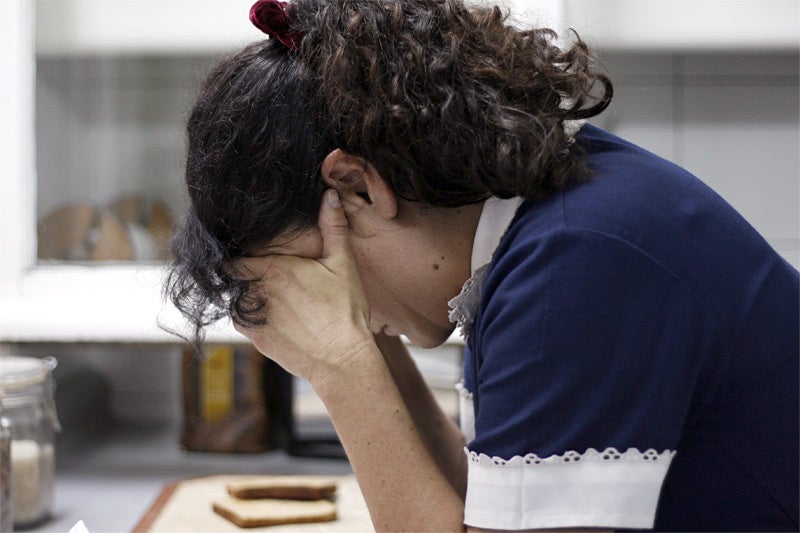
In the other movies, there’s never any doubt about the fondness the domestic workers have for the employers’ children. But with The Maid, Silva creates a delicious tension by playing with the bosses’ supposition that every female servant will feel a maternal affection for their wards. Even when the maid wakes up the teen extra early on a test day, depriving her of sleep, or does away with the cat the girl received as a gift from her boyfriend, Raquel’s mistress initially refuses to believe that her housekeeper hates her daughter, because who ever heard of such a thing? And Raquel makes for such a compelling antiheroine because she professes repeatedly that she couldn’t live without the children she serves, but her actions routinely belie her words. In fact, she weaponizes her declarations of love for the children against her employers. They couldn’t fire someone so devoted to their offspring, could they?
Raquel is far from a revolutionary. But with her sullen, petty antics, she reveals her job as, well, a job—nothing more than a transactional exchange of services for compensation. And while Raquel has the luxury of taking out her disaffection against her employers in quiet ways, it’s only when she finds something outside of her work, in the other helper’s friendship, that she has anything to hope for. The Maid isn’t meant as a systemic critique, and it doesn’t have to be. Its main observation—that there’s nothing innately meaningful about domestic service—is apparently long overdue.
